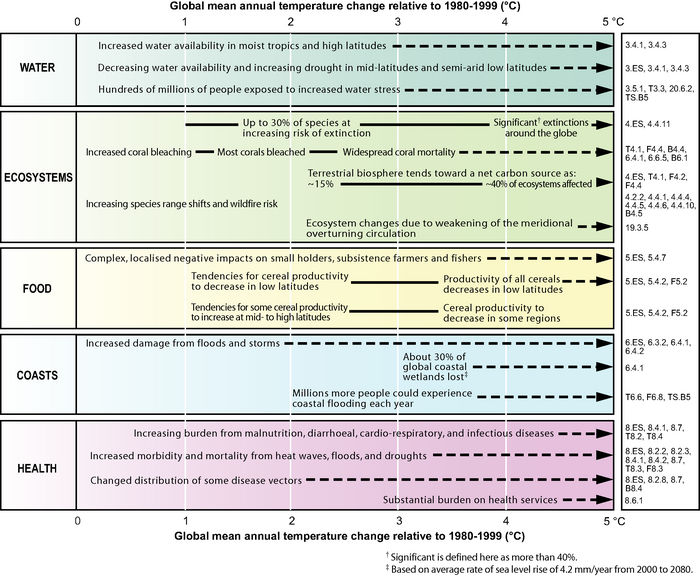A paper from Nature Geoscience (reported by the BBC here) claims that the carbon dioxide humanity has pumped into the atmosphere is holding off a new Ice Age.
This has revived an old idea best described by Hoyle and Wickramasinghe in 1999 (full text) that we are more at risk from cold than heat. As they argue:
The renewal of ice-age conditions would render a large fraction of the world's major food-growing areas inoperable, and so would inevitably lead to the extinction of most of the present human population
Given that the earth has mostly had more carbon dioxide in its atmosphere and has been significantly warmer than today (see here), could warming be a net positive in the long term? An alternative and perhaps more vivid way to phrase this question in a way that highlights the issue could be: is the current world climate optimal for humanity or biodiversity?
N.B. It might be worth distinguishing gains to life in general from gains to humanity as we emerged in a cold climate and tend to live near coastlines which might change as warming happens.
Edit: Recent statistical palaeontology studies have resulted in a change of mind about biodiversity over geological history. Mayhew's group had previously argued that warm periods had low biodiversity (despite the opposite being the norm across today's world where the tropics teem with biodiversity). A reanalysis has reversed the original result (see nature news story). It is also worth noting that one author of the work doesn't think this is relevant to current warming (though this is opinion is not derived from his current results).

